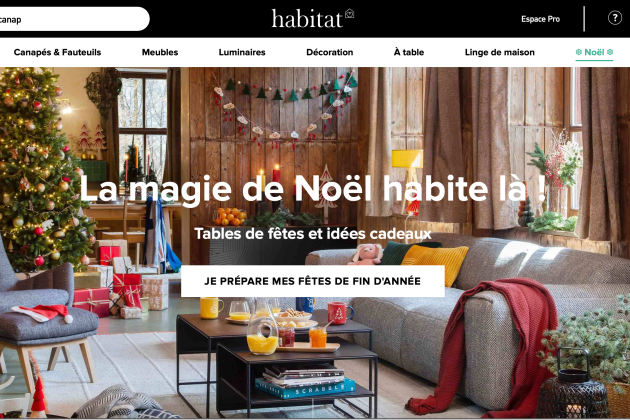European Home Companies Hit by Slowdown

Seems like just yesterday the market was high on the COVID-19 pandemic boom in home decor and furnishings. But the moment of reckoning has come and accessible European furniture companies are feeling the burn.
Last week, homeware and furniture group Habitat France made headlines after filing a request to be placed in judicial receivership, after the closure of eight French stores.
More from WWD
Saturated Colors, Femininity Key Home Textile Trends for 2024
Meet Molly Acorn, Fragrance Exec Turned Antique Fireplace Restoration Expert
The business, which was bought by businessman Thierry Le Guénic in 2020, asked for protection from the Bobigny Commercial Court.
Habitat France has been independent from Habitat, the British group founded in 1964 by Terence Conran, after its operations were bought by French distribution company CAFOM, Centrale d’Achat Francaise pour l’Outre Mer, in 2011.
Habitat France has 25 stores and 450 employees.
In October, Maisons du Monde was also hit by retail headwinds. The company said consumer confidence across Europe and inflation had a direct effect on its third quarter, citing a 9.4 percent drop in sales. The retailer added that a challenging environment since August and deteriorating macroeconomic trends resulted in lower traffic both in stores and online.
“After a positive month of July that benefited from summer sales, nonfood consumption trends deteriorated sharply across many sectors. Consumer confidence in Europe started to decline again from August after a year of continuous recovery, as rising energy and food prices fueled inflation concerns. In France, inflation rose in August and September compared to July, affecting consumer purchasing power,” the firm said in a statement.
Across the English Channel, Next plc recently inked a deal with the insolvency administrators of U.K.’s Made.com Group plc to purchase the online furniture retailer’s assets for a mere 3.4 million pounds.
France, the second-largest economy in the eurozone after Germany, saw its economy fall by 0.1 percent in the third quarter of the year, statistics office INSEE, the National Institute of Statistics and Economic Studies, said late last month, while November inflation eased more than expected. In November, the EU-harmonized inflation hit 3.8 percent year-over-year, according to preliminary data, INSEE said.
Italy averted recession in the third quarter but its national statistics office Istat released concerning data on the effect the strong acceleration in inflation has had on Italians.
According to Istat, in 2022 more than 5.6 million individuals, or about 9.7 percent of its total population, were living below the poverty line, compared to just 9.1 percent the previous year.
In September, the European Union lowered its forecast for economic growth for 2023 and 2024, noting that inflation is impacting individual spending in shops. At the same time, higher interest rates are limiting the access to credit needed for investment and purchases.
The European Commission said a flash estimate showed eurozone consumer morale decreased to an index reading of negative 17.9 in October from negative 17.8 in September.
In a September retail report, analysts at Bryan Garnier said they forecast a “longer-than-expected recovery for European consumption in Western and Southern Europe” with growth remaining below the expectations of companies like Maisons du Monde and retail giant Fnac Darty. “Discretionary goods continue to suffer from very high food inflation, rising mortgages and often limited wage raises,” the report said, adding that France as a single market is set to lag behind for three reasons: Food disinflation could be lengthy throughout the second quarter, particularly in that country; wage increases remain lower in France than in the rest of Europe, and household electricity prices are on an uptrend in France but falling elsewhere.
Despite a postive outlook for the U.S. furniture industry (a recent report from Research and Markets pegs the total combined value of the furnishings, home decor and improvement market at $340 billion in the U.S.) companies nationwide have not gone unscathed.
After Bed, Bath & Beyond’s epic closure, Overstock won a bid for its key assets in June for just $21.5 million. Sluggish consumer spending and slowing sales were among the factors that forced furniture chain Mitchell Gold + Bob Williams to reveal closure in August. It has also since been saved, bought by Georgia-based Surya.
Best of WWD